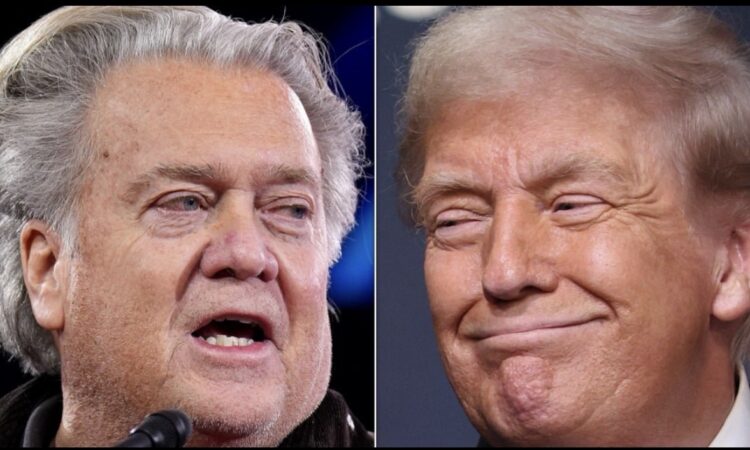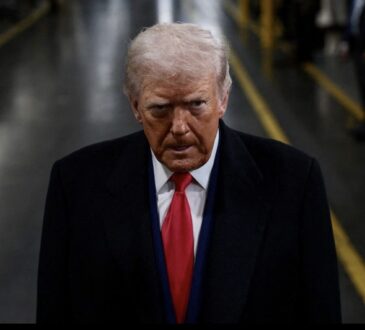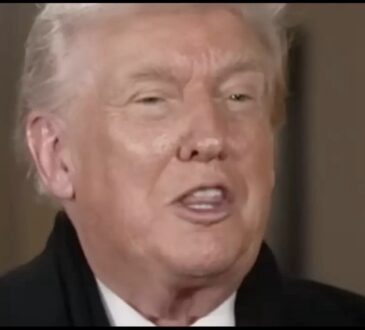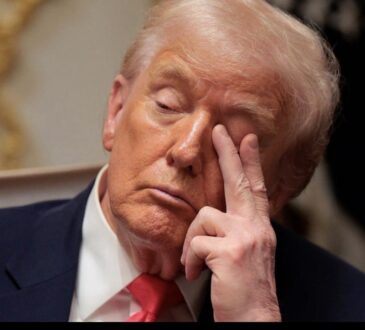
Steve Bannon, one of Donald Trump’s closest former advisors and a key figure in his political rise, recently made a bold and controversial statement that has stirred alarm across the country. In an interview with The Economist, Bannon claimed that Trump will somehow manage to return to the White House for a third term — something that the U.S. Constitution clearly forbids.
According to Bannon, there is already a “plan” in motion that would make it possible for Trump to be president again in 2028. “He’s gonna get a third term,” Bannon said confidently. “Trump is gonna be president in ’28, and people just ought to get used to that.”
When pressed to explain how this could happen, since the Constitution’s 22nd Amendment explicitly limits presidents to two terms, Bannon avoided giving a direct answer. Instead, he said vaguely, “There are many different alternatives. At the appropriate time, we’ll lay out what the plan is, but there’s a plan.”
The 22nd Amendment, which was ratified in 1951 after Franklin D. Roosevelt’s four terms, clearly states that no one can be elected president more than twice. Yet Bannon suggested that Trump’s team might challenge or reinterpret that rule. “We will define all those terms,” he said, implying that they could find a loophole in the constitutional language.
Bannon, who helped Trump win in 2016 and briefly served in his White House, also described Trump in almost religious terms. He called him a “vehicle of divine providence” and an “instrument of divine will,” saying that Trump “needs at least one more term” to finish his mission.
Those comments immediately drew backlash from political observers and historians. Ruth Ben-Ghiat, an expert on authoritarian leaders and the author of Strongmen: Mussolini to the Present, said Bannon’s language was deeply troubling. “This is getting creepy,” she wrote on X (formerly Twitter). She explained that this kind of rhetoric — describing a political figure as chosen by a higher power — is common in dictatorships and propaganda meant to justify unlimited power.
Even if Trump somehow tried to run again, he would face enormous obstacles. By 2028, Trump will be 82 years old, making him the oldest person ever to seek or hold the presidency. If he served another four years, he would remain in office until age 86. That’s in addition to growing public concern about his mental and physical health, which has been widely discussed since his return to office in 2025.
Still, Trump himself has hinted at the idea of a third term multiple times. He’s even started selling “Trump 2028” merchandise and told NBC News earlier this year that he wasn’t “joking” when he talked about staying in power beyond the traditional limit.
Critics online are warning Americans not to dismiss these statements as empty talk. One user, John DiLillo, wrote: “I’d love to be wrong, but they keep saying this in public. He’s selling Trump 2028 merch. He’s remodeling the White House like it’s his personal home. I don’t see why we shouldn’t take it seriously just because it’s unconstitutional.”
Another user said, “They’re saying the quiet part out loud. After everything we’ve seen, we’d be fools not to take this rhetoric seriously.”
Others pointed out the hypocrisy, imagining how Trump supporters like Bannon would have reacted if Barack Obama had ever suggested running for a third term. One critic wrote, “This is a complete distortion of the Constitution.”
Political commentator Charles Perreira summed up the concern best: “Every word out of Bannon’s mouth is a roadmap to chaos. Trump fantasizing about 2028 shows he’s detached from reality, and his followers are cheering for an illegal power grab. Democracy doesn’t get cameo appearances — it either gets respect, or it dies.”
Bannon’s comments have reignited debate about the growing authoritarian tone in Trump’s political circle. What many find worrying is not just the idea of Trump serving again, but the fact that figures like Bannon openly talk about bypassing the Constitution — and believe they can find a way to do it.
As Americans debate this new wave of political rhetoric, one thing remains clear: the discussion about democracy’s limits, the rule of law, and the future of presidential power in the United States is far from over.




